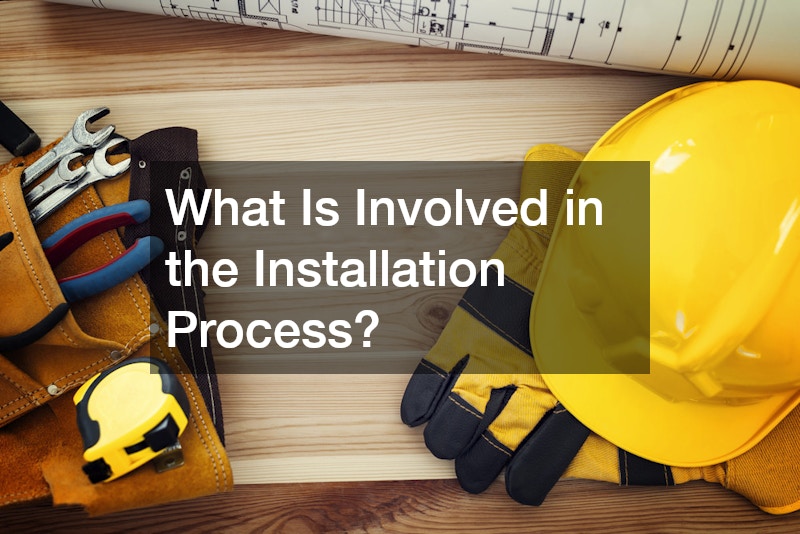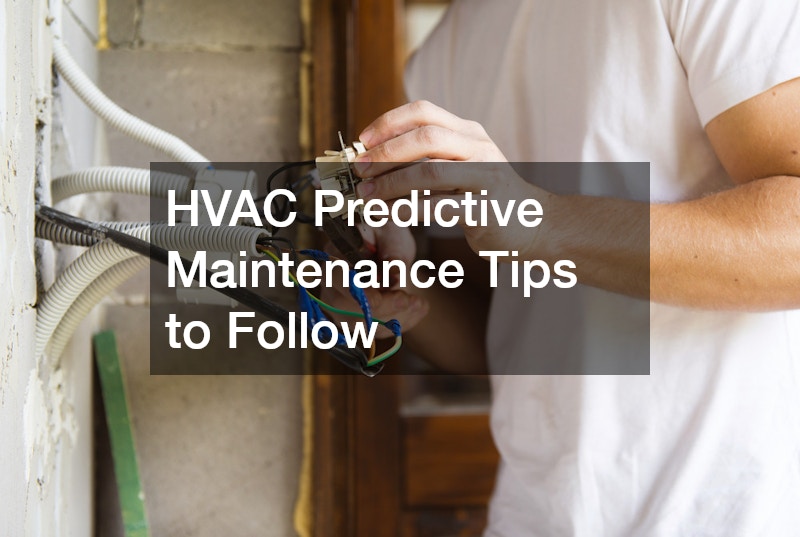Upgrading your primary heating system is one of the most effective ways to increase home comfort, reduce energy bills, and minimize environmental impact. Whether your home relies on heating oil, electricity, or renewable energy sources like a solar panel system, modern HVAC technologies offer significant improvements in efficiency and performance. The process often involves collaboration with professionals such as a local plumber, electrician, or roofing contractors to ensure that every part of your home’s infrastructure supports the new system. With the right upgrades, homeowners can enjoy better living conditions while saving money over time.
Why Should I Upgrade My Primary Heating and Cooling System?

Benefits of Modern Systems
Modern heating and cooling systems are far more advanced than their predecessors. They feature energy-efficient components that consume less fuel, whether you’re using heating oil or electricity. Paired with technologies like smart thermostats and solar panel integration, these systems can drastically improve your home’s energy use and comfort.
Impact on Energy Bills
Upgrading to a newer heating system can result in immediate savings on your monthly energy bills. Older systems that rely on inefficient components or outdated energy sources—such as aging oil furnaces—tend to consume more resources. A new setup, especially when supported by spray foam insulation installation, minimizes heat loss and maximizes indoor climate control, which reduces your need for constant heating and cooling.
Environmental Considerations
New HVAC systems emit fewer greenhouse gases and often use environmentally friendly refrigerants. By incorporating solar panels or switching from oil to electric heat pumps, homeowners reduce their dependence on fossil fuels. Enhancing insulation with an insulation service can also support eco-friendly goals by limiting energy waste.
Long-term Savings
Although the initial cost of a system upgrade can seem high, long-term savings from reduced utility bills and fewer repair costs can make it a financially wise decision. Many homeowners also find value in integrating services like electric panel install and solar panel upgrades, which contribute to overall energy efficiency and savings over time.
Improved Home Comfort
A properly installed heating system provides more consistent temperatures, better humidity control, and quieter operation. With the addition of spray foam insulation installation and quality ductwork, conditioned air stays inside, and drafts are kept out. The result is a cozier, more comfortable home year-round.
What Are the Costs Involved in Upgrading?
Initial Investment
The price of a new heating and cooling system depends on the size of your home, the type of system you choose, and whether you’re transitioning from heating oil to electricity or integrating a solar panel solution. You may also need to account for electric panel install costs if upgrading to high-efficiency electric systems.
Installation Costs
Professional installation is critical. Hiring a licensed local plumber or electrician ensures that all aspects of the system—plumbing, electrical, and ventilation—are correctly handled. If you’re integrating solar or upgrading roofing structures, a roofer or roofing contractors may be involved to ensure the system is properly secured and weather-protected.
Maintenance Expenses
Modern systems often come with warranties and lower maintenance needs. Still, regular service is necessary, especially if the system includes multiple components like solar panels, electric panels, and insulation. Choosing an experienced HVAC company that partners with electricians and insulation service providers will help maintain system longevity.
Financing Options
Many HVAC companies offer financing plans or leasing options. In some cases, energy-efficient upgrades—like spray foam insulation installation or solar panels—qualify for government rebates or tax credits, making them more affordable over time.
Comparing Costs to Benefits
The upfront investment should always be balanced against long-term financial benefits. When comparing, factor in lower heating oil usage, improved energy efficiency, and savings from solar energy. The involvement of a qualified roofer or insulation service provider can enhance your system’s performance and maximize cost-effectiveness.
How Can a New System Improve Energy Efficiency?
Importance of Energy Star Ratings
Selecting a system with a high Energy Star rating ensures you’re investing in one of the most efficient products on the market. Systems with this rating often work best when paired with adequate home insulation and complementary services like electric panel upgrades and spray foam insulation installation.
Advanced Technologies in Modern Systems
New systems feature variable-speed motors, zoned temperature control, and options to connect with renewable energy sources like solar panels. Upgrading your electric panel may be required to handle the increased demand of these high-tech components, which can be efficiently managed by a qualified electrician.
Smart Thermostats
Smart thermostats learn your habits and make automatic adjustments for peak efficiency. When connected to a solar-powered system or optimized electric heating, they reduce unnecessary usage and maximize comfort.
Reducing Carbon Footprint
Switching from heating oil to electricity or solar power drastically cuts emissions. Improved insulation—through spray foam or traditional methods—further reduces your environmental impact by limiting the energy required to heat or cool your space.
Insulation and Its Role
Insulation is a crucial part of any energy-efficient home. An insulation service can evaluate your current setup and recommend improvements. Spray foam insulation installation is particularly effective at sealing gaps and reducing heat loss, allowing your heating system to work less and save more.
What Key Features Should I Consider?
Size and Capacity
Proper sizing is vital. A system that’s too small won’t provide adequate heating or cooling, while one that’s too large can waste energy. Your HVAC technician, in coordination with your insulation service provider and possibly a roofer (if your attic or roof insulation is involved), will help determine the best fit.
Efficiency Ratings
Look for systems with high SEER (Seasonal Energy Efficiency Ratio) and AFUE (Annual Fuel Utilization Efficiency) ratings. If you’re transitioning away from heating oil, this is especially important to ensure you’re getting a truly efficient replacement.
Types of Systems
Depending on your needs, you might choose from furnaces, heat pumps, or ductless mini-splits. Heat pumps, which run on electricity and can be paired with solar panels, are increasingly popular for their versatility and efficiency.
Noise Levels
Many new systems run more quietly than older models. Some homeowners also choose to insulate mechanical rooms or install sound-dampening solutions during spray foam insulation installation to further reduce noise.
Warranty and Support
A strong warranty ensures peace of mind. Be sure the warranty also covers supporting components, such as electric panel installs or any roofing work done to accommodate solar equipment.
What Is Involved in the Installation Process?

Preparation Steps
Before installation begins, your contractor will assess your home’s existing infrastructure, including the heating system, ductwork, electric panel, and insulation. If improvements are needed, they may recommend hiring an electrician, local plumber, or insulation service provider to prepare for the upgrade.
Choosing a Professional Installer
It’s crucial to work with licensed professionals. Look for HVAC companies that collaborate with other trades such as roofing contractors for rooftop installations, and electricians for electric panel upgrades or wiring for solar panels.
Installation Timeline
Most installations are completed in a few days, though timeframes can extend if additional work is required, such as spray foam insulation installation, roofing adjustments, or electrical updates.
Post-installation Checks
Once installed, the system undergoes rigorous testing to ensure optimal performance. This includes airflow calibration, thermostat syncing, and efficiency testing, possibly in coordination with electricians and insulation professionals.
Testing System Efficiency
Efficiency testing involves checking for energy leaks, proper thermostat function, and correct integration with other home systems. A comprehensive approach—factoring in insulation and even solar panel integration—ensures you get the most from your investment.
When Is the Best Time to Upgrade?

Seasonal Considerations
Spring and fall are ideal for HVAC upgrades due to lower demand. You’ll also have more scheduling flexibility with your roofer, local plumber, or electrician during these off-peak seasons.
Signs Your System Needs Replacement
If your heating system requires frequent repairs, relies on outdated heating oil, or struggles to maintain consistent temperatures, it may be time for a replacement—especially if other upgrades like insulation or electric panel installs are already planned.
Financial Planning
Budgeting for a new system includes evaluating potential upgrades like spray foam insulation installation or solar panels, which can increase long-term savings.
Leveraging Tax Credits and Incentives
Many energy-efficient upgrades—such as solar panel systems, insulation services, and electric panel upgrades—qualify for tax incentives and rebates. These programs can significantly reduce the overall cost of upgrading.
Off-peak Installation Benefits
Scheduling during slower seasons may also yield discounts or bundled deals with other services, such as insulation upgrades or solar panel installation.
How Does Upgrading Affect My Property Value?
Increased Appraisal Values
Energy-efficient homes often appraise for more. A modern heating system, electric panel, or solar array installed by professional roofing contractors can significantly increase your home’s value.
Market Trends and Buyer Preferences
Today’s homebuyers look for energy efficiency, especially in homes that no longer rely on heating oil and feature upgraded insulation and solar power solutions.
Energy Efficiency as a Selling Point
Features like spray foam insulation, new heating systems, and solar panels make excellent selling points. Buyers see them as signs of a well-maintained, future-ready home.
Return on Investment
The ROI on HVAC upgrades is high, especially when paired with insulation and energy improvements like a new electric panel or solar array.
Enhanced Curb Appeal
In addition to efficiency, upgrades can also enhance aesthetics. New rooftop installations, clean solar panels, and modernized outdoor units installed by experienced roofing contractors contribute to your home’s curb appeal.
What Should Be Done with My Old Heating and Cooling System?
Recycling and Disposal Options
Many components can be recycled—especially metal and parts from old heating oil systems. Proper disposal by a local plumber or HVAC company is essential to avoid environmental harm.
Trade-in Programs
Some manufacturers and contractors offer trade-in deals when purchasing a new heating system. These programs often include removal and safe recycling of the old unit.
Donations and Second-Hand Market
If your old system still works, consider donating it or selling it on the second-hand market. Many nonprofits or landlords might make use of it.
Environmental Impact
Proper disposal minimizes pollution. An environmentally responsible contractor can ensure heating oil tanks and refrigerants are removed safely and in accordance with regulations.
Resale Value
In rare cases, functioning systems may retain some resale value. However, most homeowners opt to recycle them, especially when upgrading to modern, solar-compatible systems.
How to Troubleshoot Problems with New Systems?
Common Startup Issues
Minor issues such as thermostat misconfigurations or uneven temperatures are common during the first few days. Your installer or electrician can help address these quickly.
Maintenance and Regular Checks
Scheduled maintenance ensures longevity. Working with a contractor who also offers insulation service and solar panel maintenance can streamline upkeep.
When to Call a Technician
If the system underperforms or you notice unusual sounds or smells, call a certified technician. Electric panel issues should always be handled by a licensed electrician.
Warranty and Repairs
Keep warranty documents accessible. Some repairs may involve coordination with other professionals, such as a local plumber or roofer, depending on the system layout.
User Manuals and Support Resources
User manuals provide guidance on maintenance, settings, and troubleshooting. Many manufacturers also offer online support for more complex systems that include solar or electric components.
What Are Common Misconceptions About Upgrading?

Cost Myths
Many believe HVAC upgrades are prohibitively expensive. However, with incentives, financing, and bundled services—such as insulation or electric panel upgrades—the cost becomes much more manageable.
Installation Complexity
While it may seem complex, especially with solar panels or spray foam insulation involved, experienced professionals make the process efficient and low-stress.
Energy Efficiency Doubts
Some question whether new systems truly save energy. The combination of a new heating system, proper insulation, and clean energy sources like solar panels proves otherwise.
System Lifespan Concerns
Modern systems are built to last, especially when maintained properly and installed with compatible electric panels and energy-saving insulation.
Limited Tax Benefits
In reality, many energy-efficient home upgrades qualify for generous tax credits and rebates. This includes not just HVAC systems, but insulation, solar panels, and electric panel installs as well.
Final Thoughts
Upgrading your primary heating and cooling system is a smart investment in your home’s efficiency, comfort, and value. By collaborating with trusted professionals—including a local plumber, electrician, roofer, and insulation service—you ensure that your new system works in harmony with every part of your home. From reducing dependence on heating oil to integrating solar panels and spray foam insulation installation, the benefits of upgrading go far beyond simple comfort—they pay off in savings, sustainability, and peace of mind.


